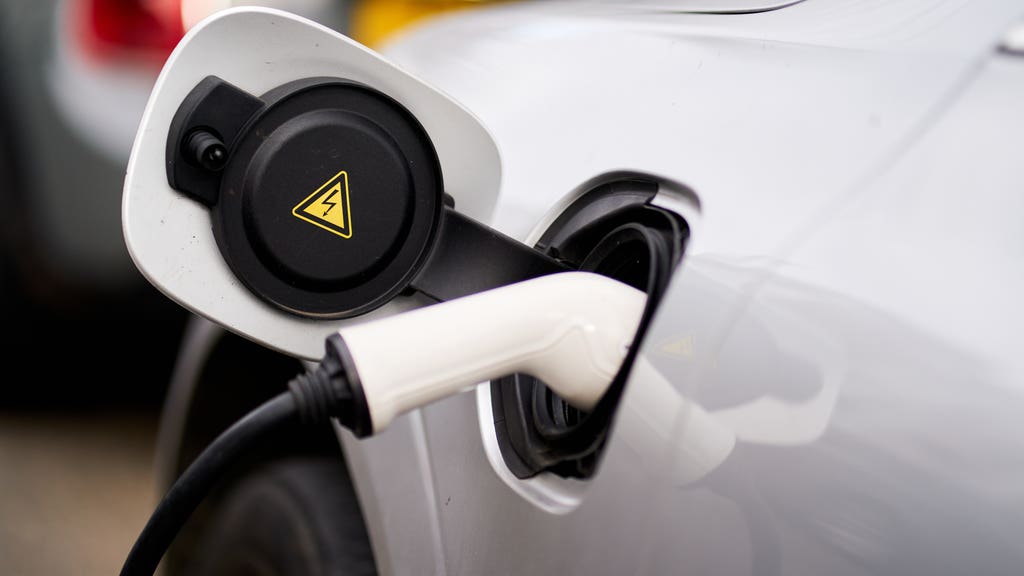Home charging points for electric vehicles will be preset to switch off for nine hours a day during peak times in a bid to ease strain on the National Grid.
There have been several fears that increased sales of electric vehicles could see millions of motorists plugging their cars in when they get home from work – causing nationwide blackouts.
In order to combat the issue, the government wants to see home charge points turned off for up to nine hours a day, with randomised 30-minute shutdowns if demand is too high.
The Sunday Times reports that regulations submitted to the World Trade Organisation suggest home and workplace chargers would not operate between 8am and 11am, or 4pm to 10pm.
Public charge points, often found at the side of the road or at motorway service stations, would not be affected by these rules, allowing those charging on the move to top up at any time of day.
The proposals have been made ahead of the government’s ban on the sale of new petrol and diesel vehicles from 2035.

The strain on the National Grid has long been of concern as EV uptake has increased, with motorists encouraged to charge at off-peak times.
Chargers and vehicles allow owners to schedule their charging, particularly useful for waiting until electricity is less expensive overnight.
Sales of electric vehicles have been slow to take hold, but there are signs that the switch is beginning to pick up pace.
Although the pandemic has skewed last year’s numbers and the semiconductor shortage is limiting production this year, data shows electrified vehicles sales have increased significantly in the past year.
Year-to-date, EV sales were up 107 per cent to 92,420 by the end of August, while plug-in hybrids were up 144 per cent to 73,156.
Petrol and diesel were down three and 34 per cent respectively.
This has also seen the market share of electrified vehicles increase across the board, with EVs specifically up from five to eight per cent.
Petrol now accounts for less than half of all UK registrations, down from around 60 per cent last year.


































